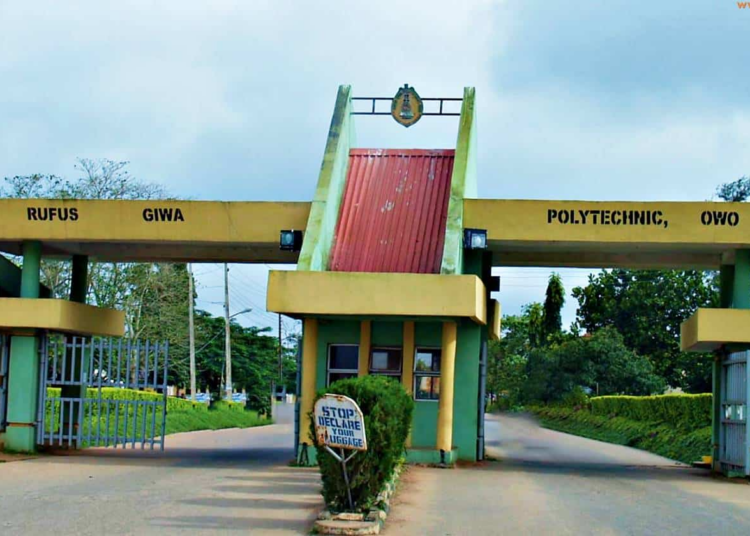Lecturers at the Rufus Giwa Polytechnic, Owo, under the Academic Staff Union of Polytechnics (ASUP), are demanding the payment of their 11-month salary arrears before they conduct examinations for students.
Addressing a news conference on Tuesday, ASUP Chairman, Ade Arikawe, stated that the lecturers are no longer able to work on empty stomachs.
He said the irregular payment of salaries has been a persistent issue for over seven years, with minimal progress despite their efforts to resolve it.
“We have tried to fulfil our duties even when we were hungry,” Arikawe said.
“We did this for the sake of Governor Oluwarotimi Akeredolu, who is an Owo native, to prevent his political opponents from exploiting the non-payment of salaries against him.
“However, we have done enough and cannot wait or endure any longer. This struggle has been ongoing for seven years. We will not conduct exams for students until our salary arrears are paid. The only language we want to hear is confirmation of our salary payment.”
Arikawe revealed that since the beginning of 2023, academic staff have only received their February salary and a partial payment for March. He further disclosed that the polytechnic owes over N6 billion in salaries, promotion benefits, and other expenses.
The ASUP chairman also expressed concern about the institution’s failure to pay financial benefits to staff promoted since 2015. He added that the polytechnic currently faces significant deficits in infrastructure, equipment, and teaching aids.
Arikawe attributed the chronic salary delays to the continuous reduction in government subvention to the polytechnic, which began during the administration of former Governor Olusegun Mimiko.
He emphasized that the unpaid salaries have caused untimely deaths, avoidable illnesses, broken marriages, humiliation, and other unimaginable living conditions for the lecturers.
Arikawe disputed the government’s claim to have cleared salary backlogs for other workers while neglecting the polytechnic lecturers. He condemned the establishment of a panel to manage the polytechnic’s conversion to a university without involving ASUP.
“We demand that qualified ASUP members be allowed to migrate to the proposed university following the example of other states,” Arikawe asserted.
However, he commended the state government for reinstating some ASUP members who were previously sacked due to their union activities.
The lecturers’ stance highlights the ongoing struggle for fair compensation and sustainable funding in Nigeria’s tertiary institutions. Their demand for timely salary payment reflects the crucial role they play in educating the nation’s future generations.
NAN





